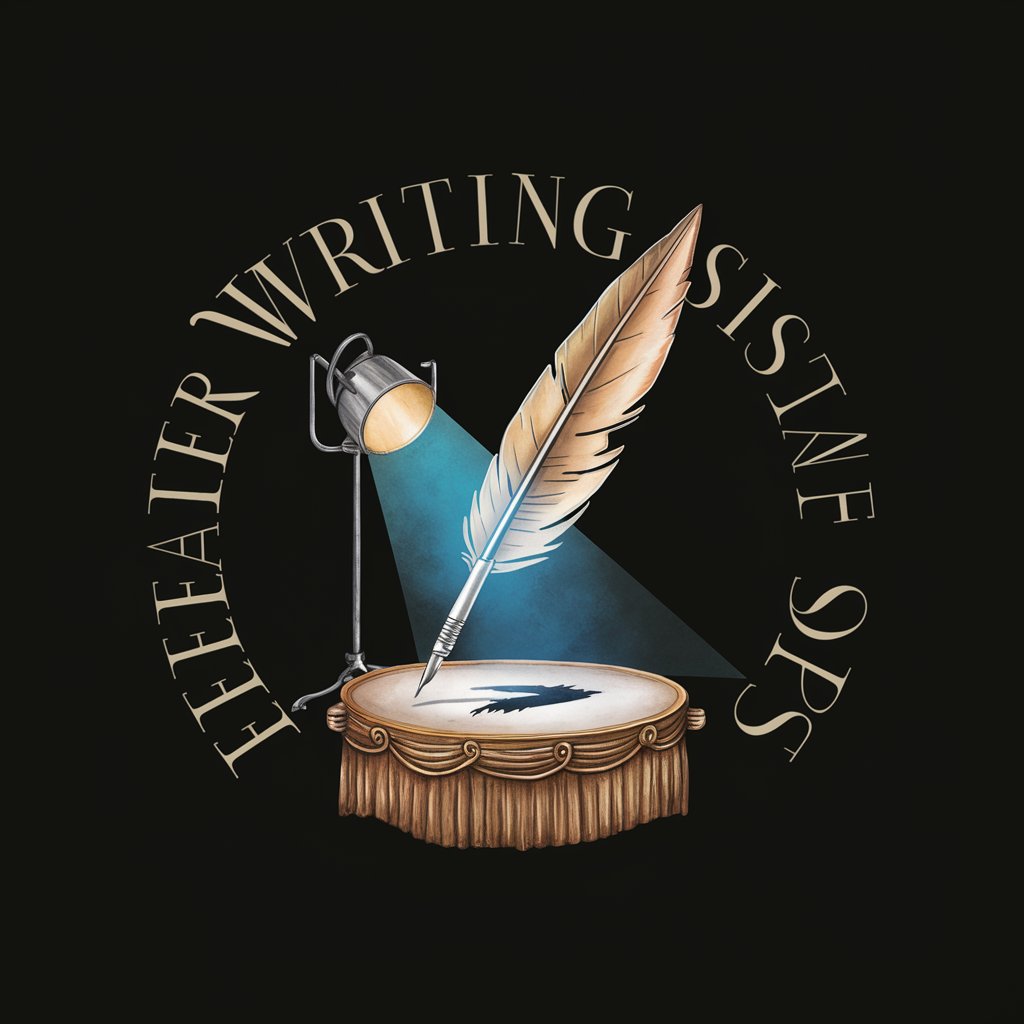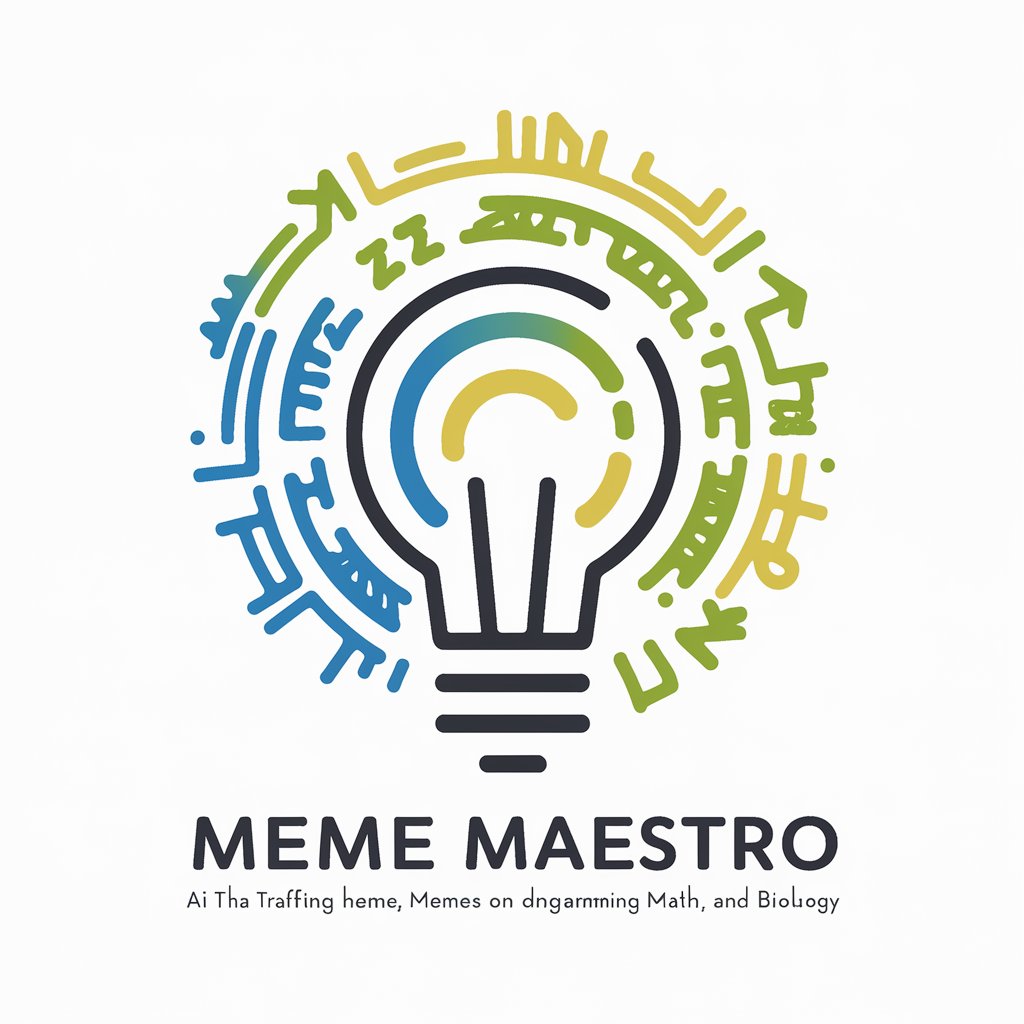Theater Writing Assistant - AI-Powered Playwriting Support

Welcome to your theater writing journey!
Craft compelling plays with AI
I want to write a play about...
Can you help me develop a dynamic character who...
What are some tips for writing realistic dialogue in a play?
How can I effectively use stage directions to enhance my play?
Get Embed Code
Introduction to Theater Writing Assistant
Theater Writing Assistant is a specialized AI tool designed to aid in the creation and development of theatrical scripts. Its core purpose is to provide targeted support in various aspects of playwriting, from conceptualization to finalization. This includes assistance in developing plot structures, creating dynamic characters, crafting realistic dialogue, and integrating various theatrical elements like lighting, sound, and set design. For instance, if a playwright is struggling with character development, Theater Writing Assistant can provide strategies and questions to deepen character backgrounds and motivations, enhancing their role in the narrative. Powered by ChatGPT-4o。

Main Functions of Theater Writing Assistant
Playwriting Techniques
Example
Assisting in structuring a play, determining pacing, and developing themes.
Scenario
A playwright is uncertain about how to structure their play's narrative. The Assistant provides guidance on establishing a three-act structure, creating a compelling inciting incident, and developing a satisfying climax and resolution.
Character Creation and Development
Example
Providing strategies to create multi-dimensional characters.
Scenario
A writer is having trouble creating relatable characters. The Assistant offers questions and exercises to explore the characters' backgrounds, desires, and fears, making them more complex and engaging.
Dialogue Crafting
Example
Guiding on writing dialogue that captures character voices and propels the plot.
Scenario
A user is finding it challenging to write natural-sounding dialogue. The Assistant provides techniques to capture the unique voice of each character and ensure the dialogue serves the story's progression.
Stage Direction Advice
Example
Tips on how to effectively use stage directions to convey action and emotion.
Scenario
A playwright struggles with using stage directions effectively. The Assistant offers insights on how to use them sparingly yet effectively to guide actors and directors without dictating their every move.
Script Formatting for Theater
Example
Advising on the industry standards for script formatting to ensure readability and professionalism.
Scenario
A new playwright is unsure about proper script formatting. The Assistant provides a detailed guide on formatting dialogue, stage directions, and character lists to meet industry standards.
Ideal Users of Theater Writing Assistant
Aspiring Playwrights
Individuals new to playwriting who need guidance on the fundamentals of creating a script. They benefit from the Assistant's comprehensive support in understanding and applying playwriting techniques, character development, and dialogue crafting.
Experienced Playwrights
Seasoned writers looking for a collaborative tool to refine their scripts. They can leverage the Assistant's advanced features, such as nuanced character development tools and detailed dialogue analysis, to enhance their existing work.
Theater Educators
Teachers and professors who require a resource to support their curriculum. The Assistant can provide supplementary materials, examples, and exercises to help students grasp complex playwriting concepts.
Drama Students
Students studying theater arts who need a personal tutor to guide them through the process of writing a play. The Assistant can offer step-by-step assistance, from initial concept to final script.

How to Use Theater Writing Assistant
1
Start by visiting yeschat.ai to access Theater Writing Assistant for an introductory experience without the need for a login or a ChatGPT Plus subscription.
2
Identify the specific aspect of theater writing you need assistance with, such as character development, dialogue crafting, or staging directions.
3
Input your query or the specific challenge you're facing directly into the chat interface, providing as much context as possible to receive tailored advice.
4
Utilize the feedback and suggestions provided to refine your script, applying the techniques and insights to enhance your playwriting.
5
For an optimal experience, engage in an iterative process by sharing revisions and seeking further guidance to polish your script to its fullest potential.
Try other advanced and practical GPTs
Gains of Zeus / Personal Trainer / Nutritionist
Empowering your fitness journey with divine guidance.

PowerShell PowerApps Expert
Automate PowerApps with AI-powered scripts

Improv Night
Unleash Creativity with AI-Powered Improv

The Greatest Product Manager
AI-Powered Product Management Expertise

Pun Tee Creator
Crafting Wit into Wearables with AI

PitchMaster
Craft Compelling Pitches with AI

Meme Maestro
Crafting Memorable Memes with AI

Travelling Buddy
Your AI-powered Travel Companion

Ad Visuals Creator
Crafting Unique Ads with AI Power

Ghost Writer/ Content AI
Unleashing Creativity with AI-Powered Writing

Electric Forest
Your AI-Powered Festival Guide

Brand Builder
Empowering brands with AI-driven design.

Frequently Asked Questions About Theater Writing Assistant
What types of theater scripts can Theater Writing Assistant help me with?
Theater Writing Assistant is versatile, offering support across various genres such as drama, comedy, tragedy, and musical theater. It can assist in developing scripts from initial concept through to final draft, including character development, dialogue, and stage directions.
Can Theater Writing Assistant provide feedback on my existing script?
Yes, you can input sections of your script or specific dialogues, and the Assistant will offer constructive feedback, suggestions for improvement, and techniques to enhance the overall impact of your writing.
How does Theater Writing Assistant handle character development?
It guides you through the process of creating complex, believable characters by suggesting methods to deepen character backgrounds, motivations, and interactions, ensuring they contribute effectively to the narrative.
Can I get advice on staging and production aspects?
Absolutely. Beyond scriptwriting, the Assistant provides insights on integrating various theatrical elements like lighting, sound, and set design, and offers tips on staging to bring your script to life.
How can Theater Writing Assistant help me get my play produced?
It offers guidance on the business side of theater, including marketing your play, navigating festivals and competitions, and strategies for attracting producers and staging your work.
